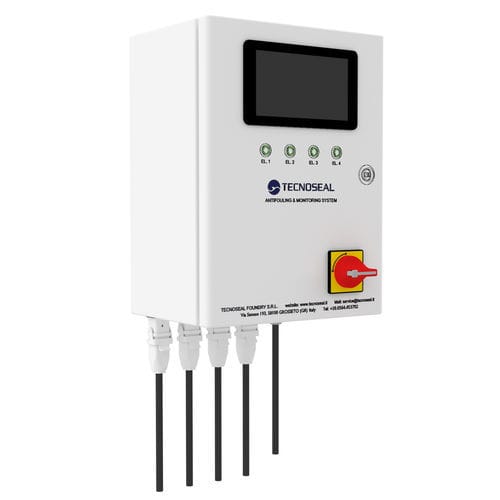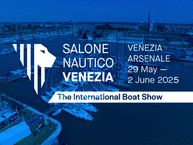
- Ship and boat building
- Materials and paints
- Antifouling system
- Tecnoseal Foundry S.r.l.

- Products
- Catalogs
- News & Trends
- Exhibitions
Electrolytic antifouling system for boats <20 mfor boats <10 mfor boats > 20 m
Add to favorites
Compare this product
fo_shop_gate_exact_title
Characteristics
- Type
- electrolytic
- Applications
- for boats <20 m, for boats <10 m, for boats > 20 m
Description
Accumulation of animal and plant micro and macro organisms - otherwise known as biofouling - on the internal surfaces of strainers, pipes, intakes, valves (in general, everything in contact with seawater), leads to obstructions which, by reducing the lumen of the pipes, may modify the seawater system performance or even lead to the sudden failure of very complex equipment.
TECNOSEAL ANTIFOULING SYSTEMS (called ICAF Impressed Current Antifouling Systems, also known as MGPS, Marine Growth Prevention System) are specifically designed in relation to the seawater circuit features to be preserved and can be installed in the sea chests, in the strainers (structural or after-market) and directly on the pipe bundles.
When in operation, the system dissipates a copper electrode whose ions carried by the water flow, are deposited on the internal surfaces of the pipes and create an antibacterial layer which inhibits the proliferation of fouling on the metal surfaces to be protected.
In dual systems, an additional aluminum or iron electrode improves the efficiency of the copper electrode and secondarily provides protection against galvanic currents.
An ANTIFOULING SYSTEM is basically composed of:
POWER SUPPLY equipped with a TOUCH-SCREEN monitor control panel
One or more electrodes of various types
Filter / sea chest / structural case / piping
In case of installation inside a Guidi® strainer, TECNOSEAL offers a wide range of electrodes equipped with anchoring devices specifically manufactured for the whole range of strainers.
Catalogs
No catalogs are available for this product.
See all of Tecnoseal Foundry S.r.l.‘s catalogsExhibitions
Meet this supplier at the following exhibition(s):


Related Searches
*Prices are pre-tax. They exclude delivery charges and customs duties and do not include additional charges for installation or activation options. Prices are indicative only and may vary by country, with changes to the cost of raw materials and exchange rates.
